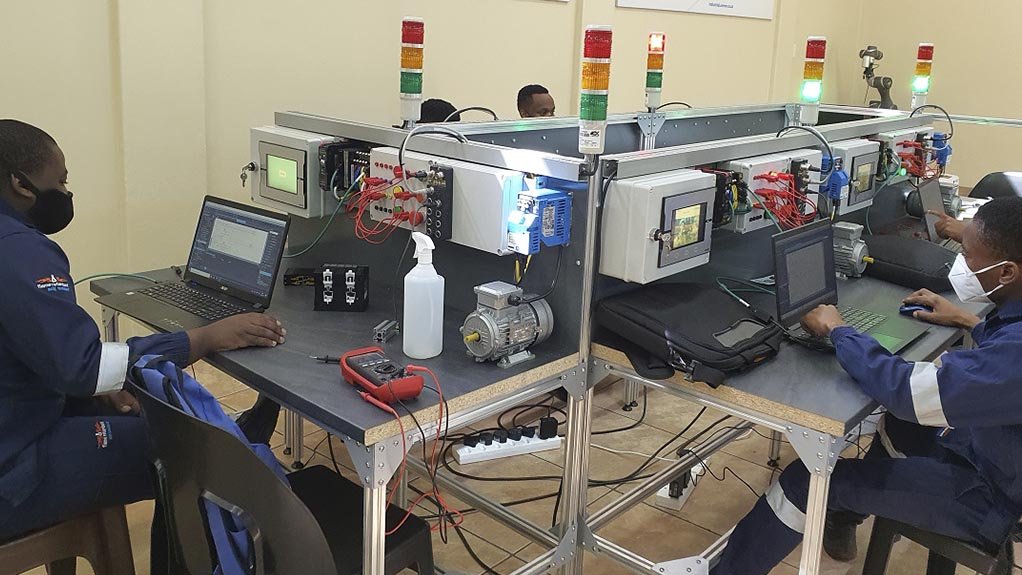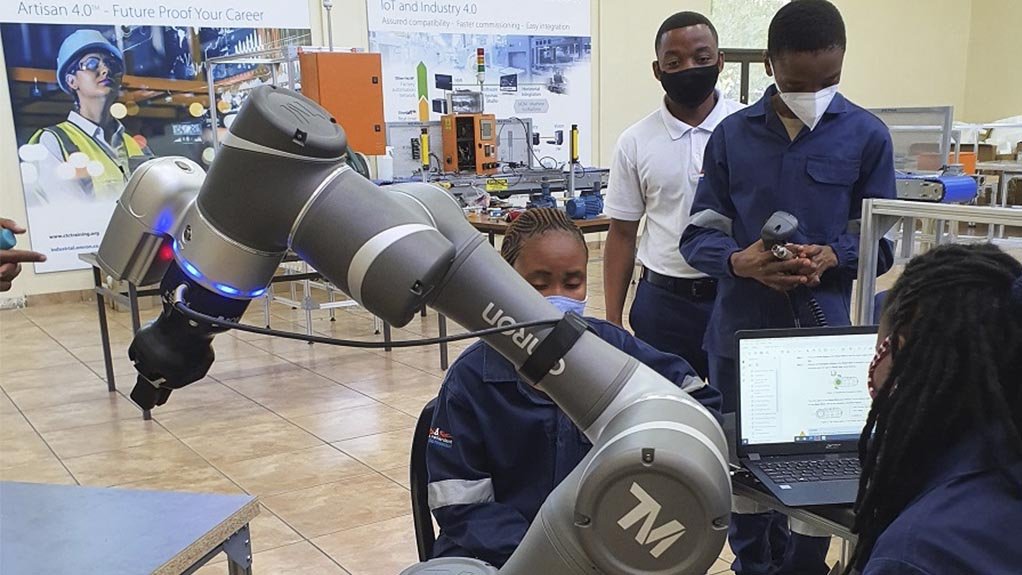A positive consequence of the Covid-19 pandemic is that it has accelerated the progression of Industry 4.0, as it has prepared us all for a life online, says industry education entity Colliery Training College (CTC) MD Johan Venter.
One of CTC’s flagship offerings is the Artisan 4.0 training programme, which Venter says is focused on learning and working online.
Phase 1 of the programme, which is a free online module, was first made available to artisan learners in September last year. Phase 2, which is a paid module, has been available online since November.
Phase 3 comprises a ten-day workshop, hosted physically at CTC’s premises in Emalahleni, Mpumalanga, during which the practical aspects of artisan work in the context of the modern, digital world of work is practised.
Venter says these workshops started last month, whereafter the candidates will then become involved in a capstone project presentation, wherein they will have to display some of the skills that they have learned during the first three phases.
While Phase 1 and 2 can be done remotely online from outside of the country, Phase 3 requires candidates to travel to South Africa, Venter says.
“However, there is the possibility that training providers elsewhere in Africa, which have the same equipment as we do, can partner with us to deliver the Phase 3 workshop training in their countries. A network of providers is a serious possibility,” he tells Engineering News.
By bringing training partners on board, CTC can expand its enrolment figures.
While there is no limit on how many learners the Phase 1 and Phase 2 online courses can accommodate, the Phase 3 workshop can only accommodate ten learners during a fortnight.
“The solution is, therefore, to have a network of providers to help with the practical part of the course,” Venter says.
He notes that the skills acquired during the Artisan 4.0 programme are useful for entry-level artisans who are vying for higher-level occupational categories.
“Digital sensors, devices and networks that talk to each other, and to human users, are becoming more pervasive,” Venter says, noting the rise of this technology in the mining industry, which is a result of various operational requirements in mining that benefit from such advancements.
“For people to implement and maintain these technologies, they need appropriate skills. The normal skills set of artisans don’t cater for this, and yet artisans are right there where the implementation is happening.”
Moreover, CTC is collaborating with the Minerals Council South Africa to explore the skills gap of mineworkers in terms of Industry 4.0.
“Just as artisans have to adjust their skills sets, those working at the proverbial coal face also need new and different skills,” Venter explains.
Further, a large part of Industry 4.0 is automation, which includes robotics. This is increasing across various industries, from distribution centres to auto manufacturers. Mines globally have also adopted autonomous mining machines.
As a result, Artisan 4.0 includes a component where learners are introduced to robotics and get to interact with it in person.
“The introduction to robotics takes the sting out of the threat of robots. People learn that robots are tools that require skilled people to operate. Robotics doesn’t replace people – it makes the work-life of people more meaningful.”
The robotics component aims to teach learners how to program autonomous vehicles and machines that can handle material safely in collaboration with people.
Venter says other notable course components are those that teach learners advanced programmable logic controller skills and human-machine interface technology skills.
“The standard curricula for electricians do not contain these learning outcomes. The same applies to electro-hydraulics and electro-pneumatics artisan curricula, nor are they taught about the smart sensors and safety devices that we see on factory and mining equipment,” he explains.
The Artisan 4.0 programme is presented in partnership with Japanese automation technology provider Omron, which provided CTC access to its online learning platform needed for Phase 2, as well as the hardware needed for the Phase 3 workshop training component.
Edited by: Zandile Mavuso
Creamer Media Senior Deputy Editor: Features
EMAIL THIS ARTICLE SAVE THIS ARTICLE
ARTICLE ENQUIRY
To subscribe email subscriptions@creamermedia.co.za or click here
To advertise email advertising@creamermedia.co.za or click here















